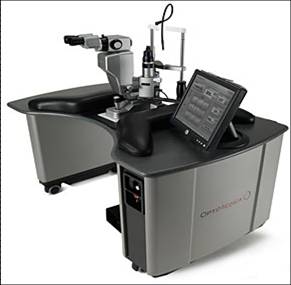What a Licensed Practical Nurse Does
December 11, 2008 by Rn2b
Filed under General Nurse Information, Licensed Practical and Vocational Nurse (LPN/LVN)
LPN or a licensed practical nurse can also be called LVN or a licensed vocational nurse. You can finish an LPN course in about a year, which means you get to earn immediately because you only study for a short period of time. If you think that Licensed practical nurses are not in demand in the society, there are many countries looking for LPNs to work at nursing homes and hospitals as well. Make sure to study in a school that will give you superb education about nursing so that even if you’ve studied for a short period of time, you are sure you’re getting the proper education needed to face the demands of society.

Licensed practical nurses not only know the basics of nursing but also does more technical work than just washing the patients, helping them walk, eat, and a lot more. They are reliable when it comes to giving injections and massages to the patients. Also, they can check the progression of the patients; vital signs, laboratory tests, and other improvements that they can note down. Their analysis counts.
However, a licensed practical nurse cannot take orders from doctors, only to those nurses who have a higher rank than them. Once a licensed practical nurse is considered an expert, he or she can now supervise nursing assistants.
According to the Bureau of Labor Statistics report last May 2006, those licensed practical nurses who work abroad more or less earn a median annual salary of $31,080 to $46,640. That’s a big money for a short period of education.
Certified Nursing Assistant vs. Licensed Practical Nurse
December 11, 2008 by Rn2b
Filed under Certified Nursing Assistant (CNA), Licensed Practical and Vocational Nurse (LPN/LVN)
A licensed practical nurse or a LPN generally takes care of people who are sick, wounded and disabled. They are supervised by a nurse with a higher rank, usually those are registered nurses. Doctors cannot give orders to licensed practice nurses and LPNs cannot assist doctors in the hospitals. All LPNs can do is to assist a higher ranking nurse in their workplace, however they are more knowledgeable when it comes to nursing compared to a certified nursing assistant.
A certified nursing assistant does the basics of nursing also with the supervision of a higher ranking nurse. However what they can do is very limited. The only advantage I can give when you are a certified nursing assistant is that you only study for a short time, meaning you only pay a little just to get certified. However, the disadvantage is much heavier; you cannot analyze the patient’s condition if he or she is progressing or not, doctors cannot give you orders, you cannot even dress wounds of people who are injured. All a certified nursing assistant can do is to dress the patients, help them walk; help them eat by feeding those who have trouble in getting up, wash them, and other basic aids that one can provide.
Licensed practical nurses on the other hand can do all the things that a certified nursing assistant know, but they are also knowledgeable on other tasks such as recording the patient’s progress; weight; height; blood pressure; pulse and a lot more. They know how to properly give injections and massages to patients. Laboratory tests can also be done by licensed practical nurses. An experienced licensed practical nurse can even supervise certified nursing assistants. Even though education is a bit longer compared to the CNAs, the knowledge you will gain is surely more beneficial when it comes to care giving.
Your First Job as a Nurse
December 11, 2008 by Rn2b
Filed under Clinical Nurse (CNS), Finding Your Nursing Job
As a neophyte to the career, nursing students must be well oriented to the nature of their first jobs as true and professional nurses. Nursing and becoming a nurse need extensive support from the school you were into. Students must be properly guided with all the undertakings a novice nurse should encounter. Have a mindset of your own. If you don’t want to fail in your first job and get disappointment as well, consider the following factors before pursuing on to the job:
1. The nature and background of the employer and the company. Turn- over rates can indicate the efficiency of the employer to new nurses. Do not hesitate to ask about the turn-over rates of the employers. 20% or higher turnovers are significantly acceptable.
2. Orientation from the company. This will indicate how effective the company can guide you through your first years as a nurse. Preceptor programs are likewise must be observed. Preceptors are mentors for first time nurses to familiarize themselves with the hospital setting including standard procedures, use of equipments and hospital routines. He or she must be helpful in assisting you towards your first years.
3. Ask about support on adjusting to the nature of the job especially conquering emotional stress.
4. Observe on the totality of the hospital’s system. This will give you a closer look on the overall nature of the company. This will also provide you with the idea of the flow of the work.
5. Ask if you are going to be assigned in a specialty unit first. Specialty units can prepare the first time nurse to handle a broader sense of the nursing profession. Nursing and becoming a nurse must undergo a level on the intensity of tasks.
6. Ask yourself if you are really ready for the job. Nursing and becoming a nurse have to prepare you as a competitive and well- rounded nurse.

